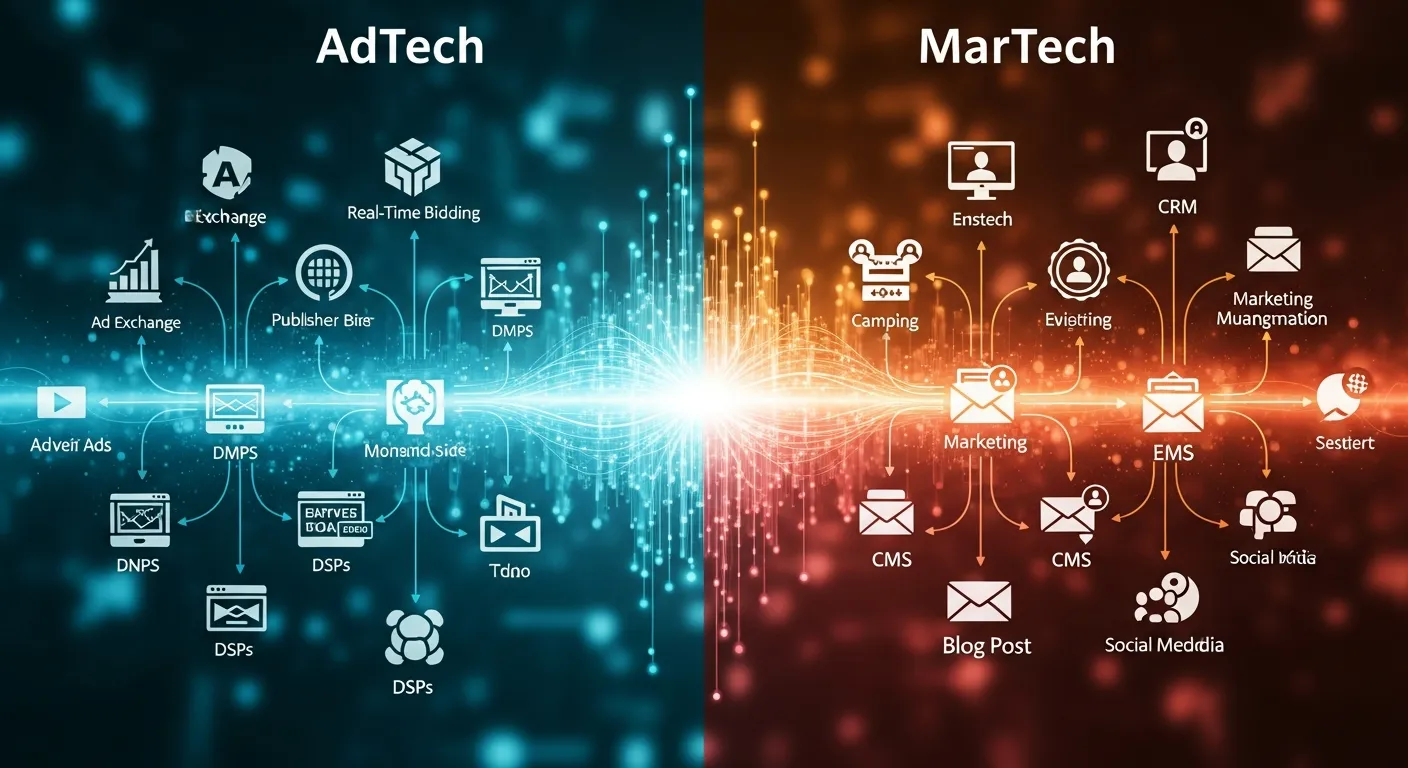In today’s fast-paced retail landscape, marketing platforms play a crucial role in connecting brands with consumers. These platforms streamline promotional efforts and enhance customer engagement, making them indispensable tools for retailers looking to thrive. With the rise of digital shopping, understanding the dynamics of retail marketing platforms has never been more important.
Retailers face the challenge of standing out in a competitive market. By leveraging advanced technologies and data-driven strategies, these platforms enable businesses to tailor their marketing efforts, reaching the right audience at the right time. As consumer preferences evolve, embracing innovative retail marketing solutions can significantly boost brand visibility and drive sales.
Table of Contents
ToggleOverview of Retail Marketing Platforms
Retail marketing platforms are essential tools that facilitate the integration of various marketing efforts in the retail sector. These platforms allow brands to execute targeted campaigns, analyze consumer behavior, and manage customer relationships effectively. Key functionalities include:
- Data Integration: Retail marketing platforms consolidate data from multiple sources, such as online and offline sales, customer feedback, and social media interactions. This integration provides a comprehensive view of the customer journey.
- Personalization: These platforms enable retailers to create personalized experiences for shoppers by analyzing purchase history and preferences. Tailored recommendations and promotions enhance customer satisfaction and loyalty.
- Campaign Management: Retail marketing platforms streamline the creation, deployment, and monitoring of marketing campaigns across various channels. Users can manage email, social media, and digital ads from a single interface.
- Analytics and Reporting: Access to real-time analytics helps retailers track campaign performance, measure return on investment (ROI), and adjust strategies accordingly. This data-driven approach enhances decision-making.
- Automation: Automation features allow retailers to schedule and execute marketing tasks efficiently, reducing manual effort. Examples include automated email marketing and customer segmentation processes.
By utilizing retail marketing platforms, businesses can strengthen their marketing initiatives, improve customer engagement, and optimize overall performance in a competitive landscape.
Key Features of Retail Marketing Platforms

Retail marketing platforms offer critical features that drive customer connections and enhance brand visibility. These functionalities empower retailers to streamline their marketing strategies and maximize engagement.
Customer Engagement Tools
Engagement tools foster meaningful interactions between brands and consumers. Features like targeted email campaigns enable personalized communication. Social media integration allows brands to reach customers where they spend their time. Loyalty programs encourage repeat purchases by rewarding customer allegiance. Live chat support enhances customer service, offering real-time assistance throughout the shopping journey.
Data Analytics Capabilities
Data analytics capabilities provide valuable insights into consumer behavior. Retail marketing platforms aggregate data from sales, customer interactions, and online activity to generate actionable reports. Performance tracking identifies which marketing strategies yield the best results, assisting in optimizing future campaigns. Predictive analytics leverage historical data to forecast trends, enabling proactive decision-making.
Integration with Other Systems
Integration with other systems streamlines operations and enhances data flow. Retail marketing platforms can connect with inventory management, CRM systems, and e-commerce platforms to create a unified approach. Such integration ensures consistency across channels and improves the accuracy of customer data. By consolidating marketing efforts within a single ecosystem, retailers increase efficiency and enhance strategic planning.
Benefits of Using Retail Marketing Platforms
Retail marketing platforms offer numerous advantages that enhance marketing efficiency and effectiveness. These benefits contribute to improved brand engagement and overall business success.
Improved Targeting and Personalization
Retail marketing platforms enable precise targeting of consumer segments, increasing the relevance of marketing messages. They utilize data analytics to understand customer behaviors, preferences, and demographics. By segmenting audiences based on this data, retailers create tailored marketing strategies. Personalization elements include customized emails, product recommendations, and targeted ad placements that resonate with individual consumers, fostering a stronger connection with the brand.
Enhanced Customer Experience
Retail marketing platforms streamline customer interactions, resulting in a more satisfying shopping journey. They allow for seamless integration of various touchpoints, such as websites, social media, and in-store experiences. Features like live chat support and personalized customer service enhance engagement and address consumer questions in real time. Consistency across multiple channels creates a cohesive experience, building trust and loyalty among customers.
Increased Sales and Revenue
By leveraging retail marketing platforms, businesses can drive higher sales and boost revenue. Effective campaign management features allow for the swift execution of marketing strategies across diverse channels, maximizing reach and impact. The utilization of predictive analytics helps identify the best times to engage customers with promotions or new product launches. Improved targeting and enhanced customer experience lead to increased conversion rates and, ultimately, a significant uplift in sales figures.
Popular Retail Marketing Platforms in the Market
Numerous retail marketing platforms exist, each offering unique features and capabilities. Understanding these platforms can guide retailers in selecting the most suitable solutions for their needs.
Platform Comparison
| Platform Name | Key Features | Target Audience | Pricing Model |
|---|---|---|---|
| HubSpot | Inbound marketing, CRM integration, analytics | Small to medium-sized retailers | Tiered pricing |
| Klaviyo | Email automation, segmentation, SMS marketing | E-commerce businesses | Pay-as-you-go |
| Salesforce Marketing | Unified customer view, multi-channel engagement | Large enterprises | Subscription-based |
| Mailchimp | Email marketing, marketing automation, landing pages | Small businesses | Freemium model |
| Oracle Marketing Cloud | Comprehensive data solutions, personalized campaigns | Mid to large businesses | Custom pricing |
Customer Reviews and Ratings
Retail marketing platforms receive various feedback from users, impacting their popularity and effectiveness.
- HubSpot: Users appreciate its user-friendly interface and powerful analytics, often rating it 4.5 out of 5 stars.
- Klaviyo: Known for its advanced segmentation, it frequently garners a 4.8-star rating due to its robust email automation features.
- Salesforce Marketing Cloud: Many users recognize its extensive integration capabilities; it typically earns a 4.3-star rating for enterprise solutions.
- Mailchimp: Valued for affordability and simplicity, users commonly rate it at 4.4 stars, especially among small businesses.
- Oracle Marketing Cloud: While it offers comprehensive data solutions, it often receives a mixed rating of 4.0 stars due to its complexity.
These reviews provide insight into how well each platform meets the needs of its users, assisting retailers in making informed decisions.
Retail marketing platforms are indispensable in today’s fast-paced retail landscape. They empower businesses to connect with consumers on a deeper level while enhancing brand visibility. By leveraging advanced data analytics and personalized marketing strategies, retailers can engage customers more effectively and drive sales.
As the market continues to evolve, adopting these platforms becomes crucial for success. The integration of various marketing tools not only streamlines operations but also fosters loyalty and trust among consumers. With the right platform, retailers can optimize their marketing efforts and stay ahead of the competition. Embracing these innovative solutions is key to thriving in the ever-changing retail environment.






